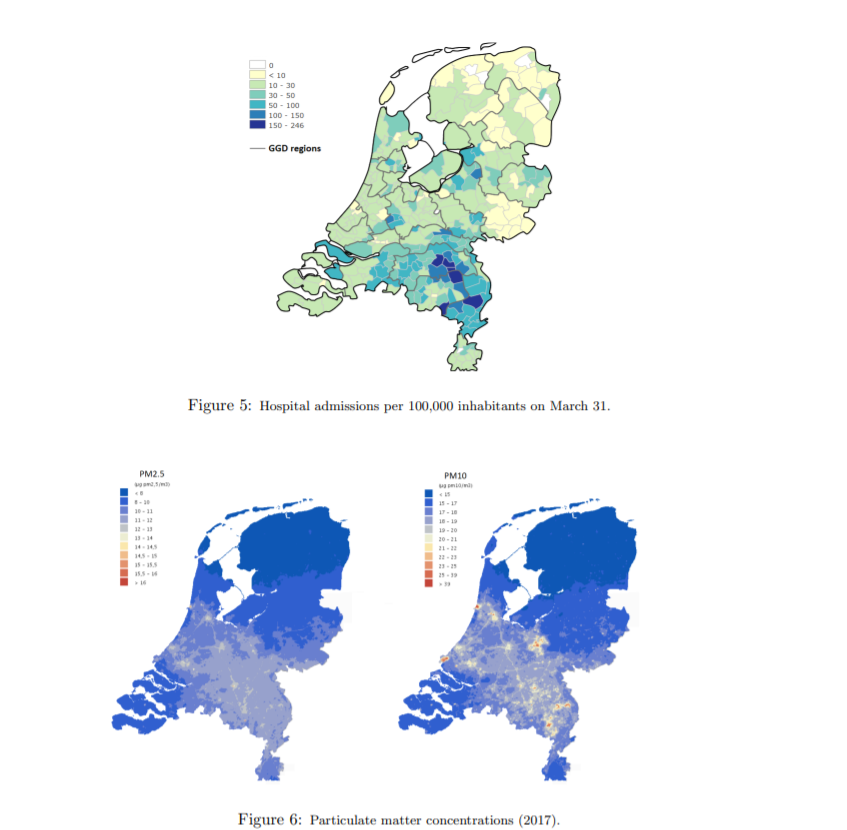SPINlab doctoral candidate Bo Andree recently led a study on the relationship between air pollution and COVID-19 incidences in the Netherlands for The World Bank. With the spread of the virus several hotspots emerged around the globe, a number of which coincided with elevated levels of air pollution. This is also visible in the Netherlands where eastern Brabant isn’t the most populated area but does have the most confirmed COVID-19 cases and relatively high levels of air pollution.
When correcting for factors such as demographics and public health the study found that an increase of air pollution of 20 percent increases the expected amount of COVID-19 cases by almost a 100 percent. Why this is the case is still unclear. The two most accepted theories are however that either people living in areas with high levels of air pollution already have lung damage due to the pollution, or that the virus latches on aerosols in the air which speeds up the spread of the virus.
Either way are the results of this study important in stopping the spread of the virus. It shows that more and or different measures should be taken to protect people that live in areas with high levels of air pollution.
The study can be found on the website of The World Bank and the VU. And has also been picked up by several Dutch news outlets (below) and the Groenlinks political party.

Andree, B. P. J. (2020). Incidence of COVID-19 and Connections with Air Pollution Exposure: Evidence from the Netherlands. (pp. 1). (Policy Research Working Papers). Washington, D.C.: The World Bank.
